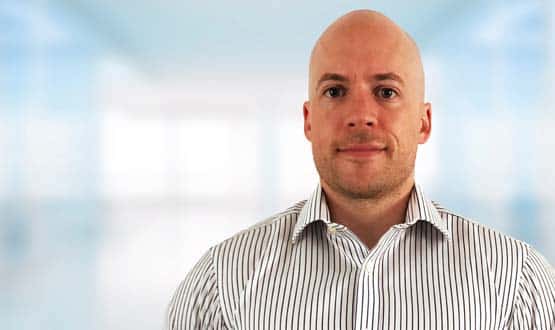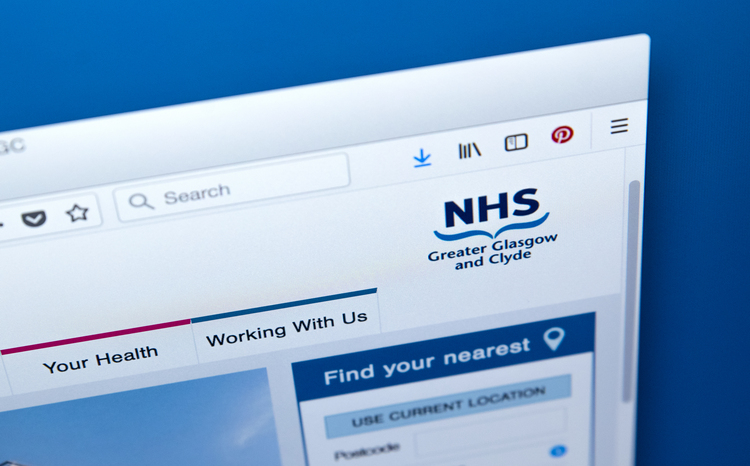Ryan Irwin’s career trajectory has rocketed from martial artist to NHS director. Now working for Cerner, he uses population-wide data to help improve individual health.
When Dr Ryan Irwin retired from competitive mixed martial arts (MMA), aged 28, he was undefeated in nine professional fights. Having started in martial arts in year six of school, he took his passion for Thai boxing into a local gym.
As a self-employed boxercise and personal trainer, in his late teens he often worked with people with multiple chronic conditions and those requiring rehabilitation from illness or injury.
“I realised how much education and deprivation affected health, and that much chronic disease was preventable,” he says.
This realisation, he says, has driven his career trajectory from martial artist and physiotherapy graduate, into NHS management and healthcare entrepreneurship. Today, as a senior population health executive at Cerner, he focuses on using population-wide data to improve individual health.
Irwin’s passion for healthcare began as a teenager on the professional MMA circuit. Having to prepare for competition, including losing up to 10kg in weight, he says required a good understanding of lifestyle and nutrition management.
“I recognised through competition that the more attention you paid to nutrition and lifestyle, the more it resulted in improved performance,” he says.
Aged 16, he broke his ankle and, following rehabilitation with a physiotherapist, he decided to study physiotherapy at Birmingham University.
“It took me away from general health and wellbeing – towards looking after people who’d been ill,” he explains.
Irwin did work placements in the NHS and, after graduating in 2008, worked across Birmingham, including in hospital and primary care settings.
“As a physio working in the NHS, you see people every day for four to six weeks,” he explains. “The conversations with patients who didn’t make it – that sparked my interest in preventative health.”
After watching TV show ‘Can Gerry Robinson Fix the NHS?’, he realised the power of management to improve the quality of care for individuals. The NHS Graduate Management Training Scheme was his next step and, as part of that, he completed a MSc in Health Policy and Management.
Over the next five years, he moved between management roles in primary care and several hospitals, including Addenbrooke’s.
He set up a nutritional supplement company, Boltura Nutrition, and a community health and wellness organisation, the Point Health Community Interest Company. He also completed a Masters in Public Administration (MPA) at the University of York, and consulted for KPMG, Attain, the United Nations and Bain & Company.
In 2017, he finished a PhD looking at differences in care quality across general practice. He joined Cerner in 2018.
“One of the advantages of working at Cerner is the ability to transform, at scale, the health outcomes of individuals,” he says.
On a typical day, he talks with primary care executive leads, directors of transformation for Clinical Commissioning Groups (CCGs) and for integrated care systems.
“I find out what challenges they’re facing and we use that to develop new analytical content,” as an example, he says.
He’s currently working on examining how Cerner can develop new products and services to support the primary care response to Covid.
Irwin adds: “We look at where they have knowledge gaps and how we can use data to support them.”
One of his key tools is Cerner’s HealtheIntent, which brings together data from multiple health and care systems.
“I help our clients to understand how to best use that technology,” he explains.
Irwin recently used HealtheIntent to help pharmacists in Wirral identify patients needing medication review. He says that the Wirral health system was able to us HealtheIntent, “to identify individual patients from system-wide variations in care as a means to help clinical pharmacists prioritise their workload”.
Cerner have now completed a pilot study in Wirral with 30 care home residents, which – he says – showed a reduction in potentially inappropriate medication use and side effects. Inappropriate medication can cause side effects, such as dizziness, leading to falls and hospital admission.
Cerner is also using data science to help Healthy Wirral Partners (HWP) and North Central London CCG target flu and Covid-19 vaccines to the people who would most benefit.
“HealtheIntent can be used to identify communities with lower vaccine uptake,” he says.
“[These analytics] support outreach, especially to those who are housebound, in a more individualised way.”
Going forwards, Irwin hopes to see population-wide data being used to help people improve their own fitness.
“There’s a real opportunity to give individuals access to their own health and care data in the context of the wider population,” Irwin adds.
Sharing health data is a key interest of his and he explains: “We’re starting to understand health inequalities using linked data – so there’s a massive opportunity for international health and care systems to learn from each other.”
One of his major passions, however, remains primary care.
“Some of the biggest improvements in care that I’ve been able to support have been primary-care led,” he says, explaining that the focus of his PhD was using data to identify variations in care quality between GP practices, in different regions – or even on the same street.
Among the projects he’s worked on was at the Partnership of East London Cooperative, ensuring that people in north-east London who called 111 reached a senior clinician if they needed one.
“[Reaching a GP] can really affect outcomes and quality of treatment,” he says.
“It’s a tangible example of how primary care can tangibly affect health quality – and it generates a quick win for patients.”
Wherever he takes his future, however, Irwin will invariably bring his experience in private, public, third sector, academic, clinical and management settings to the job.
“It’s quite a unique element to my background – it gives a rounded perspective to how everything fits together,” he concludes.
Contact Cerner:
Website: www.cerner.com/gb/en
Twitter: @cernerUK
Linkedin: Cerner







